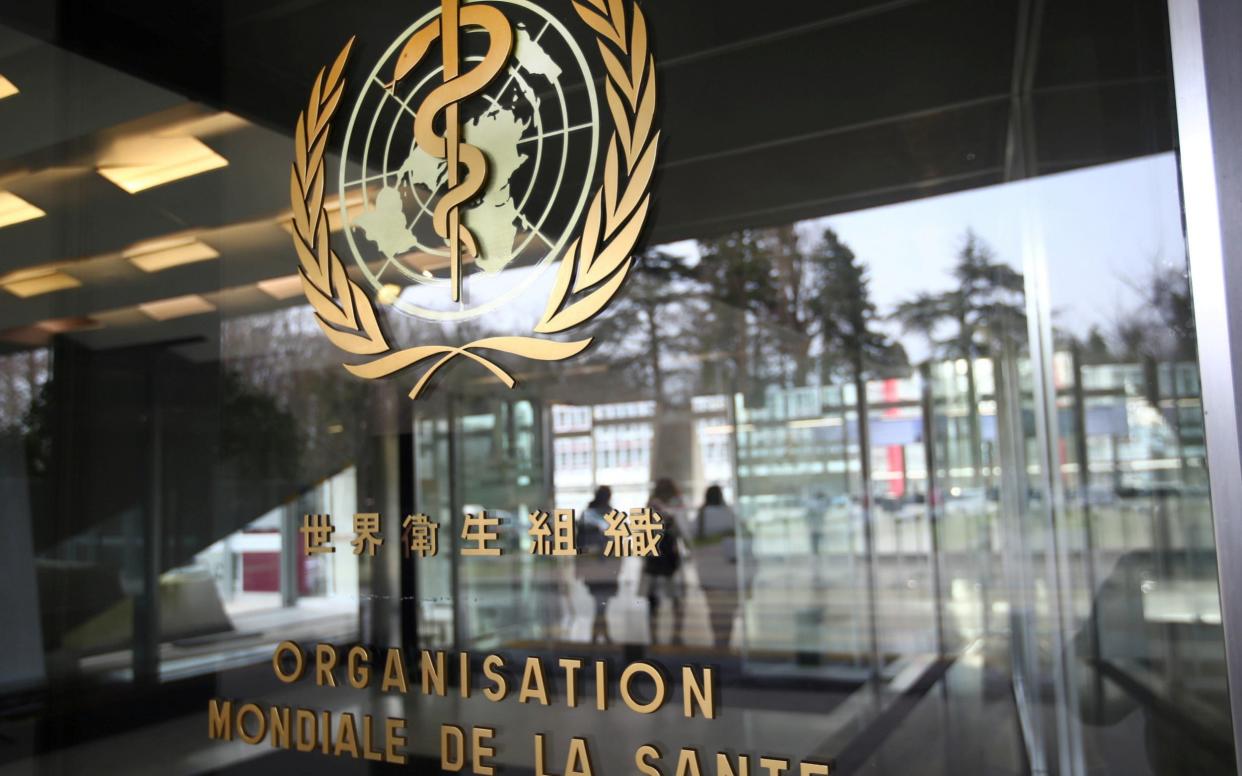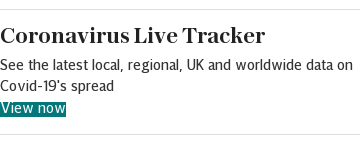'You get what you pay for': WHO experts face off criticism from MPs

David Nabarro is Britain’s man at the World Health Organization (WHO). He was the UK’s favoured candidate to lead the agency back in 2017 and he still serves as a WHO special envoy today. On Tuesday he and his former colleague Professor Ilona Kickbusch were grilled by the UK Foreign Affairs Committee on the WHO’s response to the pandemic. Their answers were surprising, sometimes shocking.
The WHO has been criticised in its response to the Covid-crisis. Do you think that criticism is fair?
“I want to stress that this is a really difficult issue,” Dr Nabarro replied. “Certainly the speed of movement towards declaring something massive was going on was much much quicker than it was for SARS in 2003.”
“We reckon when you look at the numbers we've got, you have something that was first notified on the 31 December and then finally declared [a public health emergency of international concern] on the 30 January when there were only 98 cases outside one country. That is quite extraordinary, so we see that, frankly, when you're comparing with other instances, it was quite fast.”
“We're always confronted with this public health paradox,” added Prof Kickbusch. “When do you warn? When do you not warn?”
“You will have cases where you are attacked because you called wolf supposedly too soon - think of some of the Swine Flu issues. On the other hand you're attacked, saying no this was too late. It is a very difficult balancing act.”
Are you satisfied that China was transparent with the information that it had about this outbreak and communicated that to the WHO in an appropriately timely manner?
“I think we will still have a number of things to learn about what happened in China, particularly also the communication between where the outbreak was in Wuhan etc and also the central authorities in China,” replied Prof Kickbusch.
“There are some people who are very skeptical because of the experiences with Sars, obviously they are skeptical because of the political system in China but I think we really need to wait and see what the various investigations show us and help us take forward.”
However, she added, blame for what followed the period of so-called inaction may lie elsewhere: “We talk about this whole period of January. We then have the message from the WHO that there is a public health emergency of international concern and we see a significant number of countries not taking action until mid-or-the-end of March.”
“We saw a whole number of countries that thought they were immune to this disease and did not take action… Countries only woke up when the WHO used the term 'pandemic' in March,” she said.

Are countries allowed to withhold information from the WHO that may stop other countries responding to a health threat?
“The way the whole system is run right now is one which recognises the sovereignty of each member state in determining what information they provide to the WHO secretariat,” said Dr Nabarro. “One could argue that that is an unstable situation but it is where we are at at the moment.”
“In 2005, after a two year process, the international health regulations were revised and then agreed. Central to that agreement was information about what diseases would be made available to the WHO at the discretion of member states. That was a negotiated agreement.”
“Right now if a country does not want to release information and it doesn't do so, then the organisation is not permitted to provide information from any other source than what the country tells it is happening, “ he said.
Is the WHO vulnerable to interference from external forces or member states? And have you witnessed any unacceptable interference at your time with the WHO?
“It is very difficult to speak of unacceptable interference,” replied Prof Kickbusch. “Because in a UN organisation, member states will always try and put their own interests first or at least they will do so in many cases.
“When I worked with WHO, there was strong pressure in relation to guidelines in the use of sugar,” she said.
“When there is politics and power, there will be influence of those who also contribute a significant amount of money.”
What protective mechanisms or systems does the WHO have in place to prevent malign influence?
“The organisation always has mechanisms to revisit itself,” Prof Kickbusch told MPs.
“But it is real life, some countries are stronger than others and they will continue to attempt to either weaken laws to weaken recommendations and the other way around.”

Have any nation states ever been sanctioned for what we recognise as unacceptable interference?
“There is no mechanism to call countries to order in that sense,” admitted Prof Kickbusch.
However, “in other parts of the United Nations systems, there are instruments that can be used to identify what one might refer to as unacceptable behaviour,” said Dr Nabarro. “The Human Rights Council has that capacity and there are special rapporteurs who very explicitly will actually point fingers at anything they think is wrong.
“It is quite a tightly monitored organisation,” he added. “This leads some people to complain that the place is bureaucratic.”
But others might see this “as the necessary checks and balances to stop people pushing their weight around”, he said.
Do you think the WHO finds it difficult to challenge member states?
“It is a challenge particularly during an outbreak,” Prof Kickbusch replied to this. “If we're talking about ‘calling out’, it is actually an analysis that should actually be done much earlier: who is prepared, who has the mechanisms in place and then finding a way of working together as a global community if a problem arises in one country.
“Because if we also look at the origins of these things, they are also related to ecological changes, they're related to a whole enormous amount of changes in our societies: the way we live, travel and eat etc. And many of these things could happen anywhere.”
There was a lot more evidence back in 2003 of the WHO being quite brisk with the Sars epidemic, but this time around there hasn't been. Why is that? Is there a reluctance to call out one country over another?
“I have to take you back to the point, the people who agree on the rules and the international health regulations are the member states themselves,” said Prof Kickbusch. “They have actively and consciously made sure that certain powers were not given to the WHO, so this is really a wake up call for countries.”
“To come back to Sars, Dr Gro Harlem Brundtland [former WHO director-general] herself said in an interview that today – because of the international health regulations – she wouldn't as director general of WHO be able to do what she did then: call out an international country.”
What would you say to people who say it is all some great big conspiracy?
Dr Nabarro said "This is really serious. We're not even at the middle of it, yet."
"We would all love to find a nice convenient explanation for it: 5G from telephone masts or some other thing that we could infer like vaccines that have microchips in them. I am totally understanding why people have these ideas," he said.
“It's a terrible situation: a health issue has got so out of control, it is knocking the world not just into a recession but a huge economic contraction which will probably double the number of poor people, double the number of malnourished, lead to hundreds of millions of small businesses going bankrupt and generally wreck the destination for a lot of young people who are not going to get education or opportunity.”

What would you say to [US secretary of state Mike] Pompeo's claims that the WHO has been bought?
Prof Kickbush said: “I would not accept that. That is geopolitics of the purest nature.”
Dr Nabarro said since the end of January the WHO had been consistent in its advice. He added: “This is an organisation where the people working there have values that are global and for equity and for justice. I do not recognise what the secretary of state said when he made those comments to MPs.”
What lasting effects will the Covid pandemic have on the WHO and the way it functions?
“I don't think we have yet seen what Covid is going to do to our world,” Dr Nabarro replied. “I personally believe that it is going to have a really negative impact on so much that has been happening; particularly undermining the development of poor nations and leading to a much greater disparity between wealth and poor all over the place.”
“We don't know yet,” agreed Prof Kickbusch. “If we look at Ebola... it is because of that analysis and criticism we have a whole lot of positive change.
“A significant amount of countries have seen that they can't actually do without the WHO,” she added. “A lot of member states I talk to are very committed to saying we need to save this organisation, we need to reform this organisation and we need to pay it better - you get what you pay for.”
Protect yourself and your family by learning more about Global Health Security


